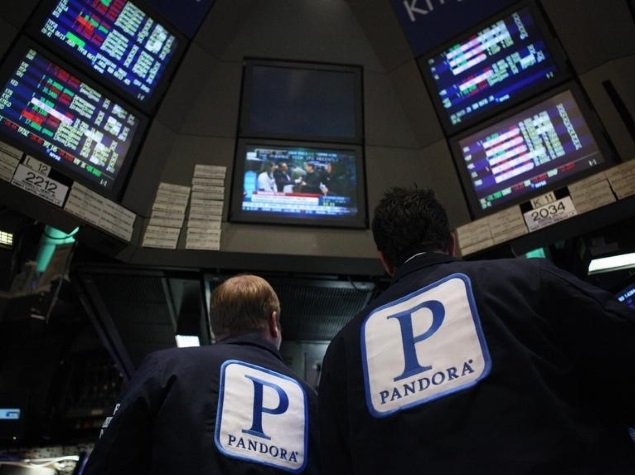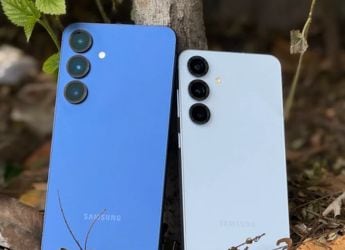Pandora Defeats ASCAP, Music Publishers in Royalties Appeal

In a case closely watched in the music industry, the 2nd U.S. Circuit Court of Appeals on Wednesday rejected an effort by the American Society of Composers, Authors and Publishers to charge Pandora more to license its music from 2013 to 2015.
It also said rules governing ASCAP licensing "unambiguously" barred music publishers from negotiating higher rates for their works with "new media" users such as Pandora, even as ASCAP licensed the same works to other users.
Vivendi SA's Universal Music Publishing, Sony/ATV Music Publishing and EMI Music Publishing had withdrawn their new media licensing rights from ASCAP, while retaining membership in that group.
Wednesday's decision is a defeat for publishers and songwriters who believe growth in streaming music has resulted in unfairly low licensing rates.
It upheld rulings by U.S. District Judge Denise Cote in Manhattan federal court, which reviews ASCAP rate disputes under a 1941 antitrust consent decree.
Pandora is the most popular Internet radio service. The Oakland, California-based company last month said it has more than 250 million users, including 79.2 million "active" users, who listen to 1.77 billion hours of music each month.
ASCAP Chief Executive Elizabeth Matthews said the decision shows the need to change licensing rules that are "completely out of step" with how people listen to music today.
Universal was not immediately available for comment. Sony/ATV, which administers the EMI catalogue, had no comment.
Kenneth Steinthal, a King & Spalding partner representing Pandora, said the decision helps ensure "equal treatment under the consent decree, including the right to perform all works by all publishers that are ASCAP members."
The 2nd Circuit said Cote did not commit "clear error" by requiring Pandora to pay ASCAP a royalty rate of just 1.85 percent of revenue to use its songs from 2011 through 2015. ASCAP proposed an escalating rate that peaked at 3 percent.
Moreover, the court said it could not "rewrite the decree" to let publishers pick and choose how works are licensed.
"The licensing of works through ASCAP is offered to publishers on a take-it-or-leave-it basis," it said.
ASCAP has about 525,000 members, and represents music from artists like Leonard Bernstein, Beyoncé, Duke Ellington, George Gershwin, Alan Jackson, Jay-Z and Katy Perry.
The cases are American Society of Composers, Authors and Publishers et al v. Pandora Media Inc, 2nd U.S. Circuit Court of Appeals, Nos. 14-1158, 14-1161, 14-1246.
© Thomson Reuters 2015
Catch the latest from the Consumer Electronics Show on Gadgets 360, at our CES 2026 hub.
Related Stories
- Samsung Galaxy Unpacked 2025
- ChatGPT
- Redmi Note 14 Pro+
- iPhone 16
- Apple Vision Pro
- Oneplus 12
- OnePlus Nord CE 3 Lite 5G
- iPhone 13
- Xiaomi 14 Pro
- Oppo Find N3
- Tecno Spark Go (2023)
- Realme V30
- Best Phones Under 25000
- Samsung Galaxy S24 Series
- Cryptocurrency
- iQoo 12
- Samsung Galaxy S24 Ultra
- Giottus
- Samsung Galaxy Z Flip 5
- Apple 'Scary Fast'
- Housefull 5
- GoPro Hero 12 Black Review
- Invincible Season 2
- JioGlass
- HD Ready TV
- Laptop Under 50000
- Smartwatch Under 10000
- Latest Mobile Phones
- Compare Phones
- OPPO Reno 15 FS
- Red Magic 11 Air
- Honor Magic 8 RSR Porsche Design
- Honor Magic 8 Pro Air
- Infinix Note Edge
- Lava Blaze Duo 3
- Tecno Spark Go 3
- iQOO Z11 Turbo
- Lenovo Yoga Slim 7x (2025)
- Lenovo Yoga Slim 7a
- Lenovo Idea Tab Plus
- Realme Pad 3
- Moto Watch
- Garmin Quatix 8 Pro
- Haier H5E Series
- Acerpure Nitro Z Series 100-inch QLED TV
- Asus ROG Ally
- Nintendo Switch Lite
- Haier 1.6 Ton 5 Star Inverter Split AC (HSU19G-MZAID5BN-INV)
- Haier 1.6 Ton 5 Star Inverter Split AC (HSU19G-MZAIM5BN-INV)







![[Sponsored] Haier C90 OLED TV | Dolby Vision IQ, 144Hz OLED and Google TV in Action](https://www.gadgets360.com/static/mobile/images/spacer.png)









